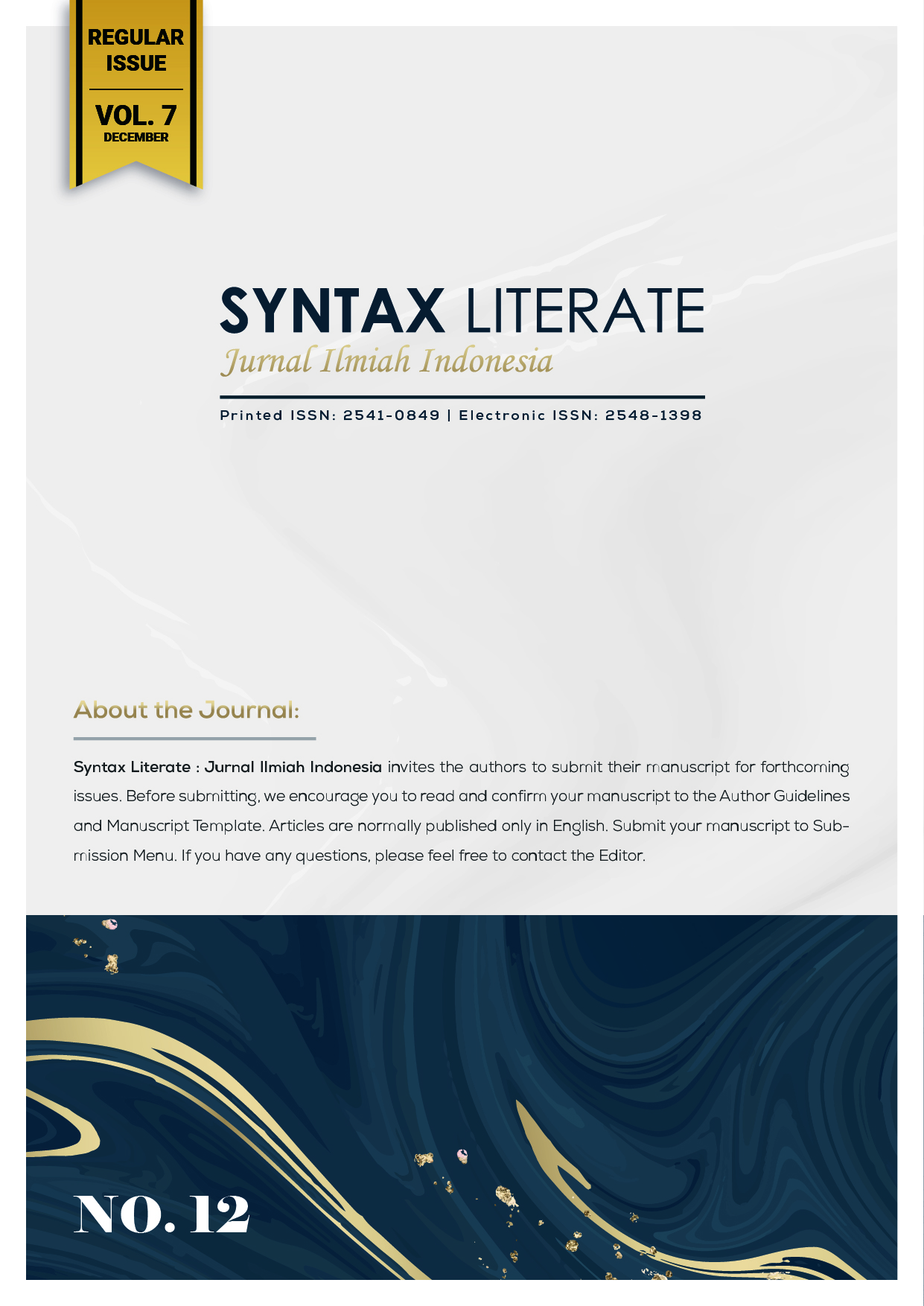The Effect of Forgiveness Therapy With Dhikr to Increase Self-Acceptance in People With Hiv/Aids at Surakarta
Abstract
This study aims to determine the effectiveness of forgiveness therapy (forgiveness therapy) with dhikr to increase self-acceptance in people with HIV/AIDS (PLWHA). The design of this study was a pre-experiment with a one-group pretest-posttest design model. The participants of this study were six PLWHA who had the characteristics of having been diagnosed with HIV/AIDS positively, had a low or moderate self-acceptance score, and were Muslim. Self-acceptance was measured using a self-acceptance scale of 28 items. The quantitative analysis test was carried out using the SPSS for Windows 16.0 computer program, while observation and interview techniques were used to obtain additional qualitative data. Quantitative data were analyzed using paired sample t-test. The results showed that there was a very significant difference in the level of self-acceptance before and after being given forgiveness therapy with dhikr with a value of t = -5.017 (p = 0.004; p < 0.01). The results of quantitative data analysis show that the level of self-acceptance of people with HIV/AIDS has increased after being given forgiveness therapy with dhikr so it can be concluded that forgiveness therapy with dhikr can increase self-acceptance in people with HIV/AIDS.
Downloads
References
Aykut Ceyhan, A., & Ceyhan, E. (2011). Investigation Of University Students’ Self-Acceptance And Learned Resourcefulness: A Longitudinal Study. Higher Education, 61(6), 649–661.
Azwar, S. (2003). Preparation Of The Psychological Scale. Yogyakarta: Student Library.
Burgess, O. (2010). Forgiveness Is A Choice: A Step-By-Step Process For Resolving Anger And Restoring Hope, And: Total Forgiveness, And: Radical Forgiveness. South Central Review, 27(3), 170–174.
Chaplin, J. P. (1997). Complete Dictionary Of Psychology. Jakarta: Raja Grafindo Persada.
Collins, B., Bronson, H., Elamin, F., Yerkes, L., & Martin, E. (2018). The “No Wrong Door†Approach To Hiv Testing: Results From A Statewide Retail Pharmacy–Based Hiv Testing Program In Virginia, 2014-2016. Public Health Reports, 133(2_Suppl), 34s-42s.
Dewi, N. K. S. U. (2020). Identifikasi Intensitas Spiritualitas Pada Odha.
Firmansyah, O. B. M., Bashori, K., & Hayati, E. N. (2019). Pengaruh Terapi Pemaafan Dengan Dzikir Untuk Meningkatkan Penerimaan Diri Pada Orang Dengan Hiv/Aids (Odha). Psikis: Jurnal Psikologi Islami, 5(1), 13–23.
Freedman, S., Enright, R. D., & Knutson, J. (2007). A Progress Report On The Process Model Of Forgiveness. In Handbook Of Forgiveness (Pp. 417–430). Routledge.
Gusti, R. P., & Farlina, M. (2016). Studi Fenomenologi Pengalaman Orang Hiv/Aids (Odha) Dalam Mendapatkan Dukungan Keluarga Di Yayasan Lantera Minangkabau Support Padang. Jurnal Ners Keperawatan, 11(1).
Harris, A. H. S., Luskin, F., Norman, S. B., Standard, S., Bruning, J., Evans, S., & Thoresen, C. E. (2006). Effects Of A Group Forgiveness Intervention On Forgiveness, Perceived Stress, And Traitâ€Anger. Journal Of Clinical Psychology, 62(6), 715–733.
Haryanto, S., & Sila, H. B. D. (2022). Integration And Interconnection Of Human Concepts In Islamic And Transpersonal Psychology. International Journal Of Islamic Educational Psychology, 3(1), 44–57.
Hasan, A. B. P., & Tanjung, H. (2017). Islamic Religious Based Mental Health Education: Developing Framework For Indonesia Mental Health Policy Analysis. 8th International Conference Of Asian Association Of Indigenous And Cultural Psychology (Icaaip 2017), 20–24.
Lin, C., Cheng, A. S. K., Nejati, B., Imani, V., Ulander, M., Browall, M., Griffiths, M. D., Broström, A., & Pakpour, A. H. (2020). A Thorough Psychometric Comparison Between Athens Insomnia Scale And Insomnia Severity Index Among Patients With Advanced Cancer. Journal Of Sleep Research, 29(1), E12891.
Lopez, S. J., Pedrotti, J. T., & Snyder, C. R. (2018). Positive Psychology: The Scientific And Practical Explorations Of Human Strengths. Sage Publications.
Mccullough, M. E., Fincham, F. D., & Tsang, J.-A. (2003). Forgiveness, Forbearance, And Time: The Temporal Unfolding Of Transgression-Related Interpersonal Motivations. Journal Of Personality And Social Psychology, 84(3), 540.
Nasronudin, B. J., Soewandojo, E., & Suharto, H. U. (2007). Hiv And Aids Approach Molecular Biology, Clinical And Social Affair. Surabaya: Airlangga University Press.
Nevid, J. S., Rathus, S. A., & Greene, B. (2005). Abnormal Psychology In A Changing World 5th. Edition.
Ogden, J. (2007). Essential Readings In Health Psychology. Mcgraw-Hill Education (Uk).
Praptomojati, A., & Subandi, M. A. (2020). Forgiveness Therapy For Adult Inmate In Indonesian Correctional Facility: A Pilot Study. The Journal Of Forensic Psychiatry & Psychology, 31(3), 391–408.
Purwadi, M. (2020). Hubungan Antara Pemaafan Dan Penerimaan Diri Pada Odha.
Sarafino, Edsarafino, E. P., & Smith, T. W. (2014). H. Psychology: B. Interactions. J. W. & S. War. P., & Smith, T. W. (2014). Health Psychology: Biopsychosocial Interactions. John Wiley & Sons.
Satrio, A. B., & Muhid, A. (2021). Efektifitas Therapy Pemaafan Untuk Meningkatkan Self Acceptance Pada Orang Dengan Hiv/Aids (Odha). Konseling: Jurnal Ilmiah Penelitian Dan Penerapannya, 2(4), 89–95.
Shaver, P. R., Wrightsman, L. S., Andrews, F. M., Robinson, J. P., & Andrews, F. M. (1991). Measures Of Personality And Social Psychological Attitudes (Vol. 1). Gulf Professional Publishing.
Subandi, M. A. (2009). Psikologi Dzikir: Studi Fenomenologi Pengalaman Transformasi Religius. Pustaka Pelajar.
Sunardi, I. (2004). Peran Penerimaan Diri Dan Dukungan Sosial Pada Toleransi Terhadap Stres Petugas Penjagaan Lembaga Pemasyarakatan. Universitas Gadjah Mada.
Thompson, L. Y., Snyder, C. R., Hoffman, L., Michael, S. T., Rasmussen, H. N., Billings, L. S., Heinze, L., Neufeld, J. E., Shorey, H. S., & Roberts, J. C. (2005). Dispositional Forgiveness Of Self, Others, And Situations. Journal Of Personality, 73(2), 313–360.
Walton, E. (2005). Therapeutic Forgiveness: Developing A Model For Empowering Victims Of Sexual Abuse. Clinical Social Work Journal, 33(2), 193–207.
Zuhra, C. M., & Muna, Z. (2022). Relationship Of Self-Acceptance With Quality Of Life In Chronic Kidney Failure Patients. Proceedings Of Malikussaleh International Conference On Health And Disaster Medicine (Micohedmed), 1, 161–170.
Copyright (c) 2022 Reza Mina Pahlewi

This work is licensed under a Creative Commons Attribution-ShareAlike 4.0 International License.











